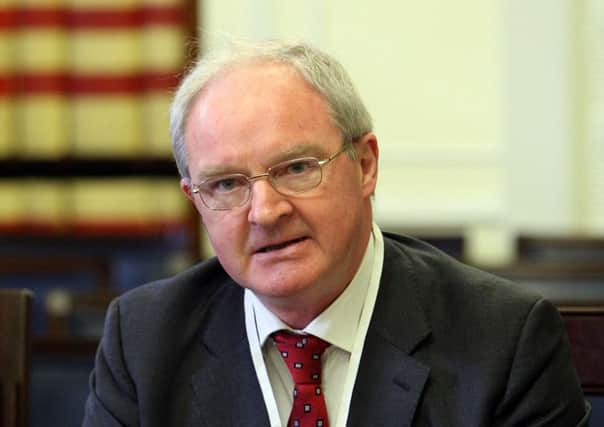Bail scandal: sureties were eight times lower than family suggested


It emerged last Friday that police have not been able to locate McLaughlin since mid-November.
He had been on bail since 2014, but this has now been revoked.
Advertisement
Hide AdAdvertisement
Hide AdHe has pleaded not guilty to aiding and abetting the murder of prison officer David Black in 2012, as well as other terror charges, and is awaiting trial which is due to begin on February 20.
Sureties act essentially like deposits, in an attempt to guarantee that a bailed individual will co-operate with the terms under which they are released from custody.
As reported on Friday, McLaughlin’s uncles had provided sureties for him.
The Court Service said they amounted to two sureties of £750 each.
Advertisement
Hide AdAdvertisement
Hide AdHowever, a News Letter report in early 2013 about a bail application by McLaughlin said the court at the time was told his relatives were “prepared to lodge £13,000 in cash sureties and property deeds to secure bail”.
The judge, Mr Justice Treacy, nevertheless refused that bail application.
Bail was granted and the level of surety set by Mr Justice Weatherup on May 2, 2014.
When asked why the surety level seemed to be relatively low, the Lord Chief Justice’s office – responsible for the Northern Irish judiciary – told the News Letter last Friday that judges consider “the financial resources available” as well as the seriousness of the offence when deciding upon an amount.
Advertisement
Hide AdAdvertisement
Hide AdIt said “the value of the surety must be proportionate and not be such as to render the defendant’s right to bail unachievable”.
When it was pointed out on Monday that McLaughlin’s family had previously offered £13,000, not £1,500, the response came: “We do not wish to make any comment on the specifics of this particular case.”